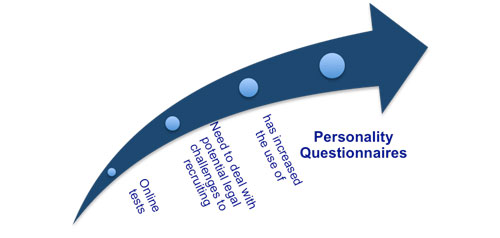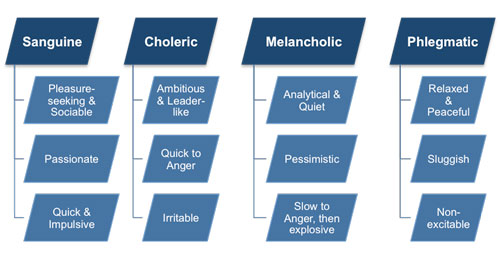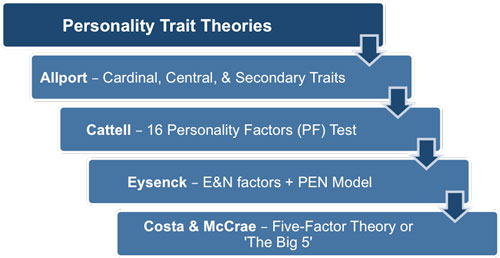Management Personality Tests
Organizations invest millions of dollars in recruiting the 'best' employees they can find. This investment aims to ensure that they only employ those individuals who are going to fit in with the organization's culture and ethos.
They try to achieve this in several ways, including: specifying the personal qualities they are looking for in the job description; only offering interviews to people whose background and experience suggest that they have these qualities; and asking relevant questions in the interview itself.
However, some organizations go one step further and use commercially available tests that claim to measure various aspects of your personality in a quantitative way. The organization can then use this data in conjunction with the interview to make a (hopefully) better decision about your suitability for the job on offer.
These tests consist of answering a series of questions, and are usually referred to as 'personality questionnaires' rather than 'personality tests' - something that removes the implication that there is a 'right' and a 'wrong' way to answer the questions. Essentially, it is not about passing or failing this part of the recruitment process; it is about ensuring that candidates are selected on how well and how quickly they will fit into the organization.
Anyone seeking employment would be well advised to put considerable effort into their preparation for the recruitment process. Most advice concentrates on how to produce an excellent resume, practice aptitude tests, and maximize your performance in an interview. (These topics are dealt with separately in their own eBooks, available from the Career Skills area of our website.)
There is some debate as to whether or not it is possible to prepare yourself for these tests, and if there would be any benefit in doing so. This eBook aims to help you make an informed decision about this and to explain exactly what these tests are trying to measure and how they try to do so.
Before going into detail about how these tests work it is important to say something about the companies that provide these types of test. The personality questionnaire and testing industry is worth millions of dollars, and new companies appear every year. Some of these tests are seeking to classify your personality; others test for certain traits (honesty and integrity) or your suitability for a specific role. This means that you will never be able to predict which of the 3,000 plus questionnaires you will be asked to take.
Whilst many companies offer a highly ethical and professional service, there are some who are reluctant to disclose the methodologies and level of accuracy used in their tests, claiming it is their 'Intellectual Property' and as such it is a matter of commercial confidentiality.
 |
This secrecy has generated some controversy in the use of personality questionnaires, but has not stopped them rising in popularity. This can be attributed to:
- Availability of online rather than paper versions of the questionnaires and tests. This significantly reduces the administrative costs of such tests.
- The need for organizations to have impartial evidence to back up their recruitment decisions if they are challenged on grounds of equality and diversity.
- Increased acceptance by individuals of the need to complete personality questionnaires.
- Greater selection of tests for recruiting agencies and organizations to chose from.
As with many specialist fields, personality testing has developed its own terminology, and different companies sometimes use the terms in different ways. To avoid confusion this eBook uses those public domain definitions of psychologist Dr. John A. Johnson of Pennsylvania State University.
The desire to label an individual's personality is not new. The physician Galen in ancient Greece advocated that a person's susceptibility to disease was related to their personality, which was a reflection of one of the body's four fluids or 'humors', as shown in the diagram below.
 |
The drive to understand what causes individuals to behave or respond to situations differently has been studied by psychologists for centuries. They have defined 'personality' as:
'The particular pattern of behavior and thinking that prevails across time and contexts, and differentiates one person from another.'
Early studies sought to distinguish the characteristics (traits) that are persistent and define a person's personality. With this knowledge, studies then investigated what variables created and controlled these traits.
In order to understand personality traits and how they are measured it is worthwhile looking at the time line of research and development in this field.
Gordon Allport compiled a list of 4,500 words that describe a person. He grouped these into three levels of traits: (i) Cardinal traits are those that dominate and shape a person's behavior, for example passion for money or fame, self-sacrifice, etc.; (ii) Central traits form the basic building blocks of a person's personality, such as friendliness, honesty, or meanness; (iii) Secondary traits, whilst they are only seen sporadically, are required to complete an individual's personality. They explain why a person may behave 'out-of-character' in certain situations.
Raymond Cattell condensed Allport's thousands of traits into 16 primary traits that he believed were the core source of the behaviors that made up a personality. He called this The 16 PF (Personality Factors) Test.
Hans Eysenck created a two-factor model, Extraversion & Neuroticism (E&N model) that encompassed Cattell's 16 traits to describe the differences in people's behavior. He and his wife added psychoticism as a third dimension, creating the PEN personality model in the 1970s.
 |
Two psychologists, Paul Costa and Robert McCrae, found the PEN model too simplistic and the 16 PF test too complex to use in the field and developed their own 'Five-Factor Theory' in 1990. It gained considerable support and has become widely accepted and used by psychologists worldwide.
It is important to understand the mechanics of 'The Big 5' as this will help you decide how to approach and prepare yourself for a personality questionnaire.
You may also be interested in:
Management Personality Tests | The 'Big 5' Aspects of Personality | Popular Personality Questionnaires | Validity Scales | Defining Your Work Personality | 'Make or Break' Questions.



